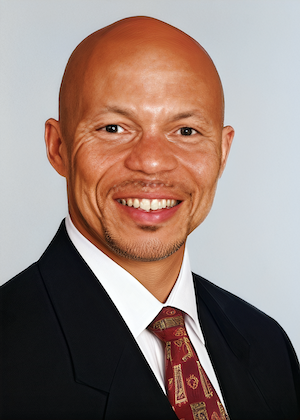
This month, Palmer News Network is honored to highlight Rev. Dr. Harry Riggs II, a Palmer Seminary alumnus who currently serves as Executive Minister of the American Baptist Churches of Connecticut. With nearly four decades of ministry experience—as a pastor, denominational leader, professor, and consultant—Dr. Riggs brings wisdom, perspective, and authenticity to his leadership.
Reflecting on his call to ministry, Dr. Riggs recalls, “My call was foretold. I was told I would be an evangelist. At first, I thought that meant preaching in a certain style, but in reality, it’s been about speaking to the church in many different contexts. From the local pastorate to national leadership, God has led me to help the church in a variety of ways.” His work across diverse settings taught him that no two congregations are alike. “Each church has its own thumbprint. Each region, each culture brings something unique. My work has been to learn from those contexts and help them grow faithfully where they are.”
Dr. Riggs credits his time at Palmer, then Eastern Baptist Seminary, with shaping his philosophy of ministry, especially through the lens of systems thinking. “Systems was huge for me. If one person enters a system, the whole system changes. That awareness shaped how I later worked with congregations in transformation. Some churches are ready for change, some are ready to be ready, and some are unwilling. Later I discovered some are unable—like a child deprived of nutrition for so long that even when food comes, they can’t fully recover. Palmer gave me the tools to see these dynamics and serve with clarity.”
As Executive Minister, Dr. Riggs finds energy in the cultural diversity of Connecticut’s churches. “It excites me, even though it can be challenging. People bring different histories and experiences, which can make unity hard, but it’s also a gift of richness.” He recently assumed leadership in the ABCUSA Black Caucus, emphasizing the importance of listening closely to congregations and identifying opportunities for engagement. “From our gatherings, we’ve identified areas like communication, deeper theological engagement, and visibility. Something as simple as a website can strengthen connections. At the same time, we want to speak prophetically within our denomination. Our hope is a more engaged, connected Black Caucus that helps shape the wider body.”
Dr. Riggs and his wife, Deidre, recently celebrated 39 years of marriage, and together they have two children, a son-in-law, and four grandchildren. “My motto has been that I want to leave a church my children and grandchildren want to attend. A place where they feel engaged, stimulated, and heard.” Deidre has been a partner in ministry in her own right, as a teacher, writer, and leader. “She’s played a huge role in our family and the churches we’ve served,” he notes.
When asked what keeps him spiritually centered, Dr. Riggs smiles, “My wife would say she does.” He also points to his passion for skiing, a way to connect with God’s creation and maintain balance in his life.
Looking ahead, Dr. Riggs sees both challenge and opportunity in the church’s current transition. “We can’t rely on ‘if we build it, they will come’ anymore. We have to lean into the Spirit, take risks, and not fear failure. Young people may not be looking at the institutional church, but that doesn’t mean God isn’t moving. I remind congregations: God already knows who is meant to be in your church. Your job is to recognize the Spirit’s movement. This is as much about your spiritual maturity as it is about filling a pulpit.”
For emerging leaders, Dr. Riggs offers a simple but profound encouragement: “Ask yourself: why does the church exist? Don’t just repeat what it has been—look to Scripture for what it should be. Love the people you’re called to serve. Be authentic. Don’t compare yourself to others. God has made you a unique fingerprint. Early in my ministry, Rev. Johnny Ray Youngblood told me, ‘Be yourself in the pulpit. If you’re not yourself, the pulpit is empty, because the person you’re pretending to be isn’t there, and you’re not there either.’ That has stayed with me. The work of ministry is only full when you bring your authentic self into it.”
Our conversation with Dr. Harry Riggs was filled with insight, candor, and encouragement. His journey reminds us that ministry is not formulaic but deeply relational and Spirit-led. Palmer Seminary is proud to call him one of our own and celebrates the impact of his leadership in Connecticut and beyond.









